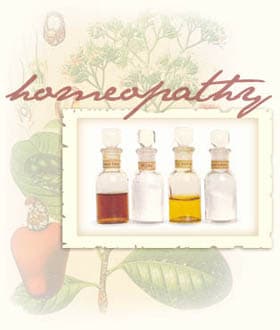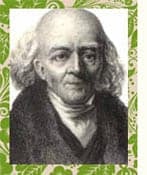
Homeopathy is based on the principle that "like cures like". That is, if a substance can cause symptoms in a healthy person, then it can stimulate self-healing or similar symptoms in a sick person. Suppose a person has had a fever, with watery eyes and burning nasal discharge. Instead of giving an antihistamine to dry up the discharge, a homeopath might prescribe Allium cepa-a tiny dose of onion, specially prepared by a homeopathic pharmacy in accordance with FDA approved guidelines- because onion in known to cause watery eyes and a burning nasal discharge.
 This principle of similars was developed into a system of medicine called homeopathy (meaning "similar suffering") by the German physician Samuel Hahnemann in the late 1700's but the concept dates back to the time of Hippocrates. The exact mechanism by which homeopathy works is unknown, but 200 years of clinical experience along with research published in such medical journals as The Lancet, Pediatrics, and the British Medical Journal have confirmed homeopathy's effectiveness.
This principle of similars was developed into a system of medicine called homeopathy (meaning "similar suffering") by the German physician Samuel Hahnemann in the late 1700's but the concept dates back to the time of Hippocrates. The exact mechanism by which homeopathy works is unknown, but 200 years of clinical experience along with research published in such medical journals as The Lancet, Pediatrics, and the British Medical Journal have confirmed homeopathy's effectiveness.
What are the medicines?
Homeopathy is a safe, effective system of medicine, used by millions of people worldwide. Homeopathic remedies are prepared from natural sources found in the plant, animal or mineral kingdoms, and are used in extremely small amounts. The U.S. Food and Drug Administration recognize them as drugs. Remedies are non-toxic and, when properly administered, can be safely used with infants, children, and adults.
Healing the whole person
Throughout history, disease has been viewed from two fundamentally different perspectives:
1. As a malfunction of specific components of the body, where symptoms are seen as a disease itself, and
2. As a result of a deeper disturbance or imbalance of the person as a whole, of which symptoms are simply the outward manifestation.
The first viewpoint is the basis underlying modern orthodox medicine. Whatever symptoms arise are counter acted by drugs, e.g., a decongestant for a runny nose, an analgesic for pain, steroids for inflammation, etc.
Homeopathy is based on the second viewpoint. An imbalance is the inherent self-healing process of the human body is considered to be the origin of illness. Symptoms whether mental, emotional, or physical, are expressions of this imbalance.
More and more clinical research is pointing out the benefits of Homeopathy. US hospitals are increasingly offering complementary and alternative treatment options to patients. Johns Hopkins Hospital and Health System's Integrative Medicine and Digestive Center offers acupuncture, Chinese medicine, reiki, massage therapy and hypnotherapy, among other treatments. At the University of Maryland Medical System, Acupuncture and reiki are offered for free at the Shock Trauma Center, and plans are underway to create a hospital-wide reiki program. The Center for Integrative Medicine also offers a wide variety of treatments including homeopathy, massage therapy, yoga and reiki.
